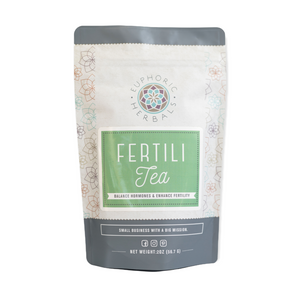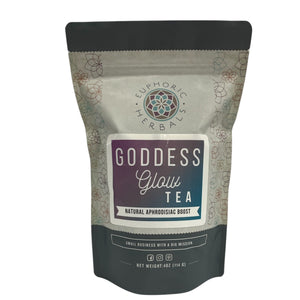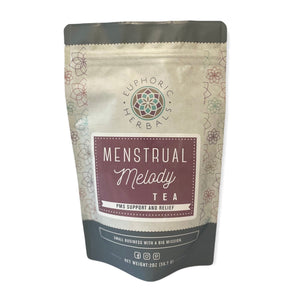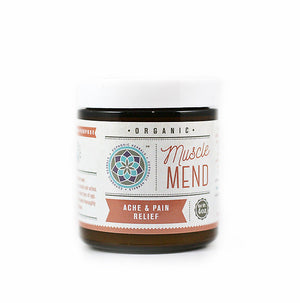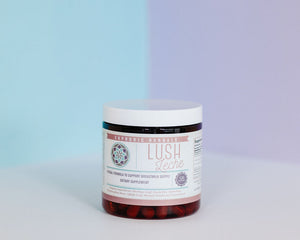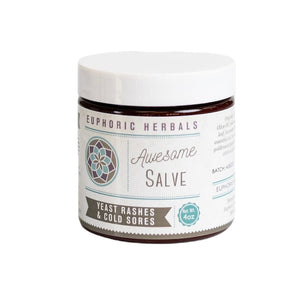Nigella seeds have been used in herbal medicine for thousands of years, but they are still relatively unknown in western countries like the U.S. That may soon change as more and more of their health benefits are being revealed.
Here's what you need to know about these incredible tiny seeds and the top benefits of nigella seed according to both traditional medicinal practices and modern research.
What is Nigella Seed?
Nigella is the shortened name of a plant known botanically as Nigella sativa. It belongs to the buttercup family of plants along with other herbs like goldenseal and black cohosh and is native to regions of the Middle East, northern Africa, and eastern Europe.
An annual flowering plant, nigella grows about a foot tall and has finely divided leaves that look almost like dill. The plants bloom with pale purple, blue, or white flowers and eventually produce seeds that are the most valued part of the plant.
Nigella seeds have been used as medicine at least as far back as the ancient Egyptian civilization and go by many names, including kalonji, black cumin, black caraway, and black seed. (But note that it is not related to either cumin or caraway.)
The seeds themselves are black (hence their name) and look like dark-colored sesame seeds. They are very aromatic with notes of oregano, onion, and black pepper.
In eastern medicine, nigella seeds have been regarded as a remedy for almost any malady and were even found in the tomb of the Egyptian pharaoh Tutankhamun. Black seeds are also mentioned in the Bible and were recommended by the ancient physicians Dioscorides, Galen, and Hippocrates.
Top Benefits of Nigella Seed
Filled with Antioxidants

Modern research has discovered that nigella seed is full of powerful plant compounds that act as antioxidants. This includes one of its main active compounds, thymoquinone, as well as others like carvacrol and various polyphenols. (1)
The rich antioxidant content of nigella could explain why it has been so highly regarded throughout history as a food for overall health and longevity.
Antioxidants are now recognized as some of the most important compounds for fighting chronic inflammation and free radical damage, thereby reducing your risk of many chronic diseases, including cancer. (2)
In fact, the antioxidants in nigella seed are powerful enough that test tube studies have shown cancer-fighting properties. (3)
Nutritious "Tonic" Herb
In some traditional medicine systems, especially eastern ones, nigella seed is considered a nutritive herb that can be used like a tonic to support overall health and help with recovery from an illness or some type of depletion.
The seeds are rich in nourishing fatty acids, a wide range of plant compounds, carbohydrates, and protein, which makes them very nutritious. (4)
In Arabic and Ayurvedic medicine, nigella seeds and/or nigella seed oil is often used to support the resilience of a mother after giving birth or as an herbal galactagogue to stimulate breast milk production.
Supports Digestion & Liver Health
Two more notable benefits of nigella seed are its ability to soothe digestion and support proper liver function.
When it comes to digestion, nigella seeds have traditionally been used to aid diarrhea and have demulcent properties that can soothe irritation and inflammation in the digestive tract. A few preliminary studies indicate that nigella may also help to protect against or treat stomach ulcers. (5)
Nigella seed promotes liver health as well and has been found to possess protective properties against both liver and kidney damage. This is likely due to its antioxidant content and unique compounds, like thymoquinone. (6)
Antimicrobial Properties & Immune Enhancement

Another traditional use for nigella seed is to support immune response to infections. Once again, some modern studies have demonstrated support for this time-honored use, finding that nigella is a natural immune booster. (7)
A second property that may make nigella seeds useful against certain types of infection is their antimicrobial effect. They have specifically shown an ability to inhibit Staphylococcus aureus (the bacteria that can cause MRSA) as well as other potential pathogens like E. coli. (8)(9)
Perhaps even more exciting is the fact that nigella showed activity against multi-drug-resistant bacteria that are becoming a huge problem because they often don't respond to antibiotics.
May Have Neuroprotective Effects
One of the more recently discovered potential benefits of nigella seed is an ability to help protect cognitive function and possibly protect against neurodegenerative disorders like Alzheimer's.
Research is still in the beginning stages as far as neuroprotection goes, but some studies already indicate that nigella is beneficial for the nervous system, particularly due to its antioxidant and anti-inflammatory effects.
Researchers have even concluded that it has the potential to help with Alzheimer's, depression, brain injury, Parkinson's, and other brain disorders someday. (10)
Promotes Lung & Skin Health as an Oil
Something not discussed in detail yet is the fact that nigella seeds can be used to make a nutrient-rich oil that has its own health-boosting properties. The oil is made by pressing the seeds and has a strong, bitter flavor.
Nigella seed oil (also commonly called black seed oil) has been especially valued for a glowing complexion and to ease minor skin irritations as well as for lung support. It has frequently been used for respiratory issues, like chest congestion and asthma, as well as allergic disorders.
Modern studies confirm that compounds in nigella (thymoquinone, carvacrol, thymol) do indeed possess bronchodilatory properties as well as antiallergic and antihistaminic properties that may help with allergic reactions. (11)
How to Use Nigella Seed

Nigella seeds are easy to consume as a "supplement" simply by sprinkling them on food or adding them to smoothies. To use them more as a spice to flavor food, you can lightly toast them and add them to curry, bread, etc.
If you want to get a more concentrated amount of nigella, you can look for the powder in capsules or grind the whole seeds at home to make your own powder.
Black seed oil can be used externally on your skin when diluted in a carrier oil or taken internally. It does have a strong flavor with a bitter quality to it, so most people prefer to take it in capsules.
Precautions
Nigella seeds have few precautions, although there are a few reports of an allergic reaction to the oil when applied to the skin. Some compounds in nigella may affect blood clotting, so talk to a health professional before using if you are taking any kind of blood clotting medication.
Nigella seeds and oil have traditionally been used during and after pregnancy, but some sources advise taking only small amounts while pregnant.
Getting the Benefits of Nigella Seed
Nigella seeds are the perfect example of an ancient health food and medicinal herb that are starting to spread around the world because of now recognized health benefits. They are easy to consume and contain many beneficial compounds that build up overall health and may offer protection against disease.
If you haven't tried them yet, give these inky black seeds a chance to impress you with their flavor and nutritious nature.
Disclaimer: This post is for informational purposes only. It does not constitute medical advice and should not be substituted for medical advice. Please consult your health care provider, herbalist, midwife, or naturopathic physician before taking herbs, supplements, etc. Here's the link to our full disclaimer.






















































